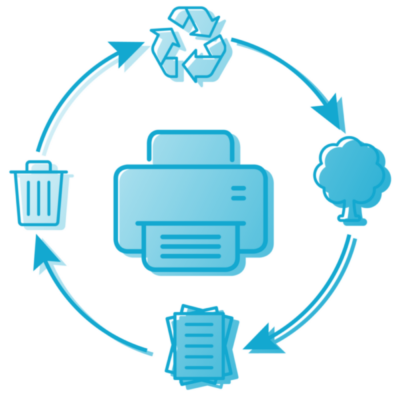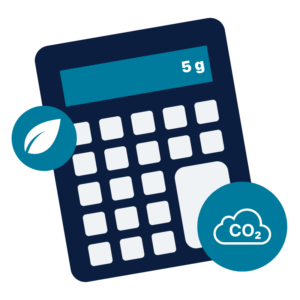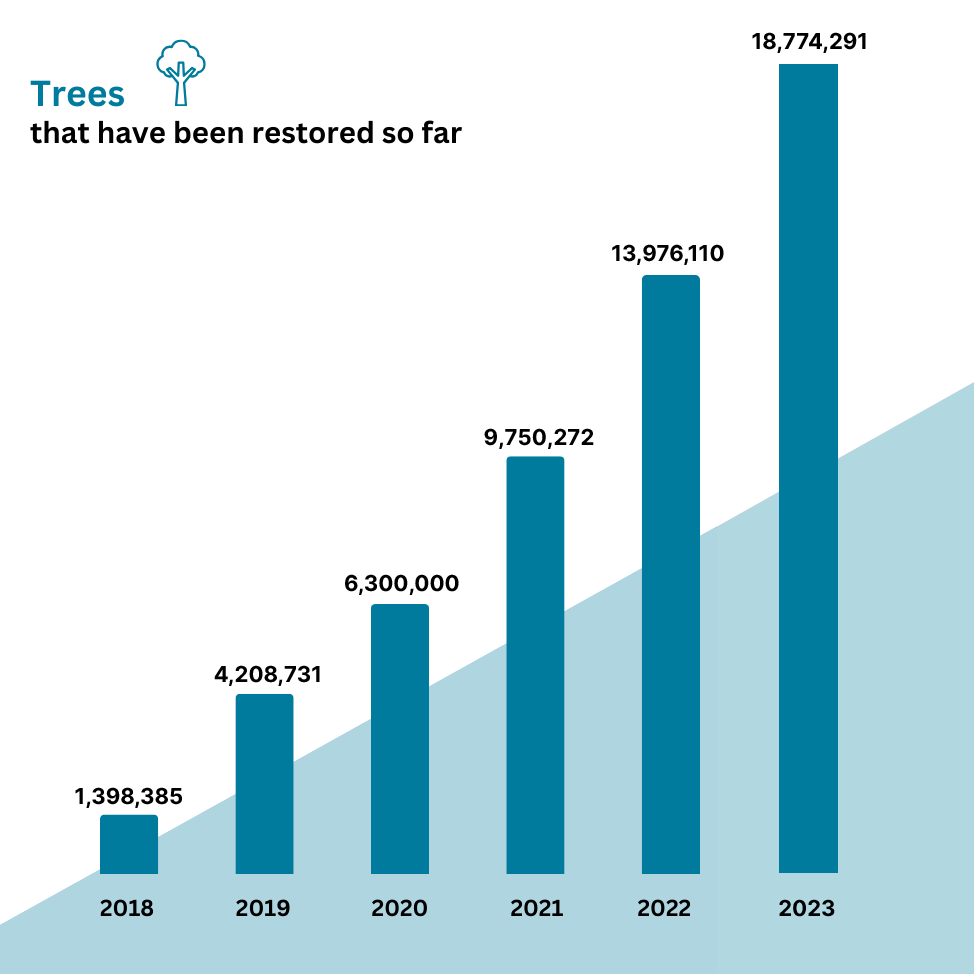CO2 Emissions During Printing
In a digital world, printed paper remains an important, electricity-free source of information and is often preferred for its legibility and accessibility. Despite the goal of a paperless office, printing is an environmentally friendly option due to its low CO2 impact.
This is further reinforced by the use of efficient printing technologies and the use of recycled paper. In addition, when paper is stored for long periods of time – in the extreme case in a notary’s office for over 100 years – it acts as a CO2 store whose capacity is roughly equivalent to its weight. This could make printing virtually climate-neutral, taking into account the CO2 storage capacity of paper.


Paper Production
1 kg of paper causes an average of approx. 1 kg of CO2 during production.
For paper made from virgin fiber, this value increases to approx. 1.2 kg of CO2 per kg of paper.
With recycled paper, it drops to approx. 0.7 kg CO2 per kg of paper.

Paper Consumption in the Office
A standard office paper has a weight of 80g/m².
One square meter of paper contains about 16 pages.
This means that a single sheet of paper produces approx. 5g of CO2 (80g divided by 16).

Energy Consumption During Printing
Inkjet printers with 15 watts have minimal CO2 emissions .
Laser printers consume 1300 watts during the warm-up phase, resulting in CO2 emissions of around 7.9g per minute.
When printing 10 pages per minute, a laser printer emits around 10.27g of CO2 , which means around 1g of CO2 per page.
Overall, the CO2 emissions per printed page are around 5g when using an inkjet printer and around 6g when using a laser printer.
If you would like to find out more about the calculation and our goals for a more sustainable future, please take a look at our white paper.

Justdiggit

Justdiggit is an environmental organization that focuses on re-vegetation and soil restoration in Africa to counteract climate change. Their main methods include:
Water Bunds: This technique collects rainwater to improve soil moisture.
Water trenches: Water is stored by creating trenches to prevent erosion.
Treecovery: This project promotes the restoration and protection of trees.
Grazing management: The aim is to manage grazing land sustainably.
Grass Seed Banks: The focus here is on the conservation of native grass species.
Justdiggit works closely with local communities, creates jobs and offers training. These approaches support both environmental protection and the development of local communities.
Everything That Justdiggit Achieved in 2023
- The total area of restored areas was almost 435,000 hectares, an increase of 14%.
- 576 villages now involved in Treecovery projects, 5% more than 2022.
- 115 new champion farmers were trained bringing the total number to nearly 2300 people.
- 176,000 households are involved with tree care.
- 18,774,291 trees have now been brought back by Treecovery, an increase of 34% compared to 2022.
- 55 km of new water harvesting trenches were created, bringing the total to 195 km.
- 139,947 new water bunds were dug bringing the total to 454,810.
- Over 6.6 billion liters of water were retained.
- 8 additional grass seed banks were set up by 143 new women entrepreneurs.

The Milestones to Date
Justdiggit has made remarkable progress since its foundation. The organization has restored almost 19 million trees, mainly in the Dodoma region in central Tanzania, and also in the Singida region.
In water conservation alone, 55 kilometers of water harvesting channels were dug in 2023, bringing the total length in the project areas to 195 kilometers. These measures help to combat soil degradation and promote sustainable agriculture.
More details can be found in Justdiggit’s 2023 Annual Report and their 2023 Impact Report.

ezeep and Justdiggit
That’s why we at ezeep have been relying on Justdiggit for our customers’ CO2 offsetting since 2017. Although it is possible to offset one ton of CO2 with Justdiggit for as little as 9 euros, we deliberately pay 30 euros per ton to make Justdiggit’s work more comprehensive.
At ezeep, we know that CO2 reduction is effective globally, regardless of where the savings are made.
You can find more information on the Justdiggit website.
